A Tale of Two Tunnels
By: / 10.21.2010
 1993. That’s when both Switzerland decided to construct a low-elevation rail line through the Alps and New Jersey committed itself to a new train link to Manhattan under the Hudson River.
1993. That’s when both Switzerland decided to construct a low-elevation rail line through the Alps and New Jersey committed itself to a new train link to Manhattan under the Hudson River.
But here the similarities end. Switzerland is now celebrating the breakthrough of the Gotthard Base Tunnel – at 35½ miles, the longest rail tunnel in the world – while New Jersey waits to see if Republican Gov. Chris Christie will officially kill a much shorter tunnel that began construction only last year. (His decision is expected shortly following a two-week review requested by federal officials.)
Chalk up the contrast – mission accomplished vs. mission barely begun before halted – to the cumbersome and increasingly dysfunctional way America handles infrastructure projects.
The problems in New Jersey began with the enormous array of legal and environmental hoops required to get the tunnel – dubbed Access to the Region’s Core or ARC – through local, state and federal approval processes. These “soft costs” added years of delay and were a major cause of the cost overruns that Gov. Christie cited as the reason for his decision to cancel the tunnel.
But the real hurdle was not bureaucratic red tape but the absence of a government entity that structures, strategizes and finances infrastructure projects free from the transient squabbles of politicians and their appointed minions.
Swiss Precision
An orderly system was developed for the biggest infrastructure project in Swiss history. An infrastructure fund was established with long-term financing based on taxes approved by voters. A single minister, Moritz Leuenberger, has been responsible for guiding the tunnel project through the shoals of Swiss politics as well as negotiating a bilateral agreement with the European Union.
When completed in 2019, the tunnel and related improvements will funnel about 300 high-speed passenger and freight trains (the latter running upward of 99 mph) beneath the Alps every day. The line is expected to serve as a key overland corridor between northern and southern Europe for the rest of the century.
The ARC tunnel is considerably less ambitious in scope, but nevertheless critical to the future of one of the most economically important regions in the U.S. The double-track rail line into Manhattan, opened in 1910 by the Pennsylvania Railroad, is now saturated to capacity with Amtrak and NJ Transit trains. ARC would add two more tracks, doubling the number of trains that could pass under the river and terminate at a new underground station in Manhattan.
Breaking a Campaign Promise
Serious study of the project began in 1993 as a venture between NJ Transit, the Port Authority of New York and New Jersey, and New York’s Metropolitan Transportation Authority. The MTA bowed out and the Federal Transit Administration (FTA) stepped in more recently.
The three agencies have been uneasy partners, cooperating on the engineering side of the project while simultaneously seeking to limit their share of the costs. The FTA has committed $3 billion, but says it doesn’t have more because of Congress’ failure to pass a new surface transportation authorization bill.
The Port Authority has also pledged $3 billion, but with a growing lack of enthusiasm after Bill Baroni was appointed deputy executive director of the Port Authority by Christie. (Baroni is a prominent New Jersey Republican with no background in infrastructure or transportation policy.)
And then there’s Christie himself, who inherited the project after defeating ardent tunnel advocate, Democratic Gov. Jon Corzine, last November.
Christie supported the project during the gubernatorial race, but now says he began doubting the project’s financial viability last winter. After a cursory report from a committee that included Baroni and other Christie appointees, the governor concluded that the tunnel could cost between $2 billion and $5 billion over its current price tag of $8.7 billion.
Armed with that headline figure, Christie announced two weeks ago that he was canceling the project because “I can’t put taxpayers on a never-ending hook.” Admitting that he was breaking a campaign promise, he added coolly, “This is a mathematics question. We’re broke. I’m not going to be contributing to that and put us further into debt for a project if we can’t afford it.”
Nearly $500 million has already been spent, and a $583 million contract was awarded for the design of the Manhattan side of the tunnel. New Jersey is on the hook for about half of the already expended funds.
Following the announcement, U.S. Secretary of Transportation Ray LaHood met with Christie. He wrested out a concession that the governor would agree to a two-week review of the project by NJ Transit and FTA officials.
Word in the media is that Christie’s resolve has only increased since then. He has refused to consider increasing the state’s gas tax or placing a small surcharge on motorists going into Manhattan to pay for possible cost overruns, eliciting scathing criticism from U.S. Senator Frank Lautenberg and other Democratic officeholders.
Nobody (neither federal nor state officials) has informed the public of detailed cost estimates for the project. Indeed, it appears that the two parties are barely talking as mutual distrust and recriminations paralyze the process.
Angling for Higher Office
Christie’s decision to withdraw from the project has only solidified his reputation as a darling of the Republican right. In recent weeks Christie was on a national tour backing GOP candidates for governor, two of whom (John Kasich in Ohio and Scott Walker in Wisconsin) have announced their opposition to accepting federal stimulus money to build passenger rail lines.
By scrapping ARC, Christie can burnish his reputation as a cost cutter to deficit-minded Republicans and independents who don’t have to commute to New York. From this point of view, the cancellation is an easy call for a man widely believed to be angling for a slot on the national Republican ticket in 2012 or 2016.
Last Friday, the breakthrough of the shaft of the Gotthard Tunnel was carried live on Swiss television. Since then, an outpouring of praise and admiration has rained down on the country from the world press and politicians. A recent poll found that 67 percent of Swiss residents support the rail project as a way to divert traffic from highways and protect the country’s mountains, lakes and resorts.
Meanwhile, wags in New Jersey have labeled the fruits of 17 years of planning and preliminary construction the “tunnel to nowhere.” Of course, the problem of moving people through one of the most congested parts of the world isn’t going away. Long after Christie leaves office, New Jersey’s economic well-being will suffer, while the costs that the governor says taxpayers can’t afford will only escalate.
But that’s not part of the political hardball now being played along the banks of the Hudson River.






